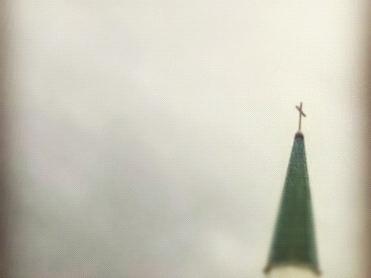Brady's humanity was blunted by the Catholic Church

The ethos, regularities, hierarchies and deferences of the Catholic Church created a mindset in Seán Brady which quietened in him the normal human impulses to care for children in danger. By Vincent Browne.
Several years ago, I had a brief meeting with Seán Brady in a hotel lobby, a meeting spontaneously instigated by him. My fleeting impression was he was a decent, modest man, and nothing that has been revealed since then disturbs that impression.
Not that I now think that how he behaved - knowing, in 1975, that children were in danger of abuse - was justifiable, or that his defence now is justifiable. But his conduct then, even when fortified by his retrospective justification of it, does not define him.
I also feel a sympathy with his disposition in 1975 because, by then, he had embodied the habits, mindset and culture of the Catholic Church - habits, mindset and culture made all the more virulent, I suspect, by Brady's doctorate in theology.
Just look at the questions he posed to Brendan Boland or, at least, the questions he recorded as having been put to Boland: whether he had had previous homosexual relations, whether the boy had experienced sexual arousal. It was as though those questions were actually relevant to the only question at issue: whether boys aged 14 had had sexual relations with an adult priest, consensual or otherwise.
Either way, a grievous crime had been perpetrated. The concentration on entirely irrelevant issues bespoke a mindset that sought to enquire into the scale of the moral culpability of the abuser, rather than the simple fact of the abuse and the dangers the abuser posed to the boy and other children to whom he had access.
I also feel sympathy for Brady in defending now what he did then - and even sympathy for his shocking insistence that he would do the same again. He seems trapped in the ethos, regularities, hierarchies and deferences of the Catholic Church, a mindset (or habitus) which obscures from him, or quietens in him, the normal human impulses to care for children in danger.
His response to the BBC documentary is redolent of this habitus. (I think the idea of habitus more clearly captures embodied, socially-learned dispositions that are taken for granted - incidentally, we all have embodied taken-for-granted socially-learned dispositions.)
He quibbled with the issue of whether he was the notary or the note-taker, as though it made any difference. As a human being, he should have acted to protect children he believed were in danger of abuse by Brendan Smyth. He said there were no guidelines in 1975 - as though human beings needed guidelines to act when they believed children were in danger of abuse.
He said he did everything he could to protect the children by alerting the "sole" person who could stop Brendan Smyth "in his tracks", as though there were no police forces on the island and the children had no parents to protect them.
He also insisted that, even today, it was up to a "designated person" to report allegations of abuse, as though others who know of abuse - and especially of the likelihood of future abuse - had no obligation, aside from guidelines. He is not alone in this habitus.
Then there is Charles Scicluna, the "promoter of justice at the Congregation for the Doctrine of the Faith", who has the same habitus. This promoter of justice saw nothing at all wrong with what Brady didn't do - but then he wouldn't, would he?
Inevitably, this goes for the Vatican and Pope Benedict as well. They all live in this habitus of rules, practices, regularities, hierarchies and deferences (although perhaps the Pope isn't afflicted too much with deference).
And that's the problem,
It is not that there is a delinquent cardinal who failed, 36 years ago, to act to protect children he believed were in danger, other than via the regularities of the Catholic Church. It is that there is a worldwide culture that exists in this same habitus, into which some normal human decencies do not intrude. Of course, Brady should not resign as Cardinal Primate of all Ireland, for he diligently adhered to the practices and regularities of the Catholic Church.
If he is forced to resign by the Church, then it is a public relations exercise, to limit damage to the institution, not because the "authorities" of that Church think he did anything wrong.
But it was not okay to hope others would rush to the protection of children that he believed were in imminent danger of sexual abuse - children who were woefully abused subsequently, due to the inaction of Brady and others - and, of course, primarily due to the criminality of the abuser.
But the rest of us have to acknowledge this habitus, this culture, and have to wonder whether the inculcation of this into the minds of the nation's children is in the public interest. If not, is the subsidising of this inculcation justifiable, inculcation via schools under the patronage of the Catholic Church and otherwise.
This episode, however horrendous, does not define Seán Brady, a decent and modest man whose innate humanity was blunted by the culture he embodied. {jathumbnailoff}
Image top: ank2798.
